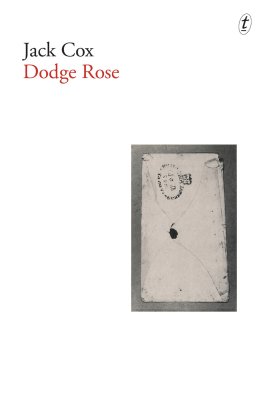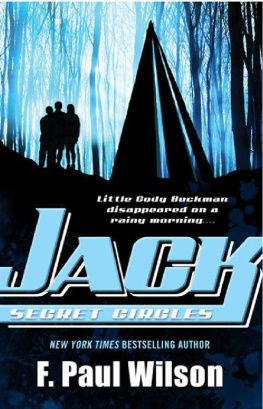ADAM THORPE
Between
Each Breath

Contents
This eBook is copyright material and must not be copied, reproduced, transferred, distributed, leased, licensed or publicly performed or used in any way except as specifically permitted in writing by the publishers, as allowed under the terms and conditions under which it was purchased or as strictly permitted by applicable copyright law. Any unauthorised distribution or use of this text may be a direct infringement of the authors and publishers rights and those responsible may be liable in law accordingly.
Version 1.0
Epub ISBN 9781446418895
www.randomhouse.co.uk
Published by Vintage 2008
2 4 6 8 10 9 7 5 3 1
Copyright Adam Thorpe, 2007
Adam Thorpe has asserted his right under the Copyright, Designs and Patents Act 1988 to be identified as the author of this work
Extract from Silence. Dust from Through the Forest by Jann Kaplinski published by The Harvill Press. Reprinted by permission of The Random House Group Ltd.
This book is sold subject to the condition that it shall not, by way of trade or otherwise, be lent, resold, hired out, or otherwise circulated without the publishers prior consent in any form of binding or cover other than that in which it is published and without a similar condition, including this condition, being imposed on the subsequent purchaser
First published in Great Britain in 2007 by Jonathan Cape
Vintage
Random House, 20 Vauxhall Bridge Road,
London SW1V 2SA
www.vintage-books.co.uk
Addresses for companies within The Random House Group Limited can be found at: www.randomhouse.co.uk/offices.htm
The Random House Group Limited Reg. No. 954009
A CIP catalogue record for this book is available from the British Library
ISBN 9780099479925
About the Author
Adam Thorpe was born in Paris in 1956. He has written five collections of poetry and ten works of fiction. His first novel, Ulverton, was published in 1992; his most recent, The Standing Pool, is published by Jonathan Cape in 2008. He lives in France with his wife and three children.
ALSO BY ADAM THORPE
Fiction
Ulverton
Still
Pieces of Light
Shifts
Nineteen Twenty-One
No Telling
The Rules of Perspective
Is This the Way You Said?
The Standing Pool
Poetry
Mornings in the Baltic
Meeting Montaigne
From the Neanderthal
Nine Lessons from the Dark
Birds with a Broken Wing
In loving memory of Frederick and Judy Busch
We are dreadfully real, Mr Carker, said Mrs Skewton; are we not?
Charles Dickens, Dombey and Son
PROLOGUE
The vehicle, a battered ice-blue Saab with a front passenger door in matt violet, raced down the wide dirt road on the southern peninsula of the island as fast as a clattery engine could take it. The plume of dust the car raised was out of all proportion to its size. It was summer on Haaremaa. The northern light was the gold of ryegrass; where it penetrated the forest of birch and alder on either side, it made minor miracles out of fine spiderwebs linking branches ten feet apart. The dust left by the car rose into the sunlight and shaped it, made it touchable.
The young woman in the passenger seat was happy. She was holding a flat cardboard tray of eggs on her lap. She was happy because it was summer, it wasnt cold or wet (as it had been, in fact, for three days), and because this evening, in her parents dacha, she would be making a huge cake out of the eggs for her husbands thirtieth birthday the following day. Her husband, who was driving, was also happy, but in the measured way usual to him; he was a specialist carpenter and had built up a reputation on the island, despite its relative poverty and ageing population, that ensured he was the first and natural choice for the most interesting of the EU-funded building projects. These included a pine-roofed spa hotel, a community hall converted from a Communist Party headquarters, and a farm museum.
The air rushed in through the open windows and caught the womans long, tawny hair, rippling it out behind her or agitating strands of it over her face. She was and he of course knew this exceptionally beautiful, even by Baltic standards: she had high cheekbones, slightly polished like the curve of cowrie shells. Her husband sometimes joked that her beauty was wasted in her job, which was helping to run the islands community radio station. The car stereo kept in place with brown tape was playing a sample album by an obscure rock band from England called Castledown. It had been sent to the radio station as a promo. The present track was called The Attending, an ethereal, lyrical song that the woman loved for its simplicity: steely guitar, frail voice, English words she couldnt catch completely but whose sad poetry she appreciated and that reminded her of the old songs of Estonia.
She is standing
on the shore
the girl I dream of
no one more
Her husbands taste was different: it was for free jazz and hard rock. She would have preferred him to drive slower, but underneath his gentle carpenters calm was this taste for the opposite, for speed and things scudding past on the surface, for distorted guitar and angry sax. He would race about the island on its dirt roads as wide as runways built for Cold War bombers in its Soviet military days as if he was starring in an American road movie, the stereo turned right up and his broad, sap-stained fingers tapping the wheel.
Up to now, he had never had an accident. There were relatively few cars on the island, and plenty of space to evade or spin in the event of an emergency. The monotony of the forest either side was the chief danger: drivers would nod off and wander and sometimes die against a tree, especially after a night on the local vodka. Or they would simply take to the road drunk. But he was not a drinker. Apart from his tendency to push the old Saab too hard on its balding tyres, there was no reason why anything should have happened.
The door on her side was violet because it had been backed into by the islands snowplough, beaten out and repainted with the only can of metal colour from the job lot her father had saved from Soviet days that remotely resembled the original blue. Being good with his hands, and not able to afford professional help, her husband had done it all himself. The chief problem was the lock the area most dented by the snow-plough. It had taken him a whole day to fix. The door had to be slammed in a certain way to enable the tongue of the lock to come home.
Right now, the door rattled very slightly, but neither of them could hear this over the noise of the old engine and the gravelly dirt road and the lovely song on the stereo, let alone the rush of the warmish summer air in their ears. The door rattled because the tongue was not quite home: she had not slammed the door correctly, encumbered by the eggs on her lap, their shells still smeared with muck and feathers. They were not eggs from the dachas hens, as they would normally have been; a fox had done its nasty work in an orgy of blood and feathers a few weeks ago, and they had not yet replaced the dead hens. But for this fox, she would not have been in the car at all, with the eggs from a cousins farm balanced on her lap.
Now she was humming along to the song, the corner of her mouth puckered in a way he loved, like the very beginning of the happiest of smiles.

















